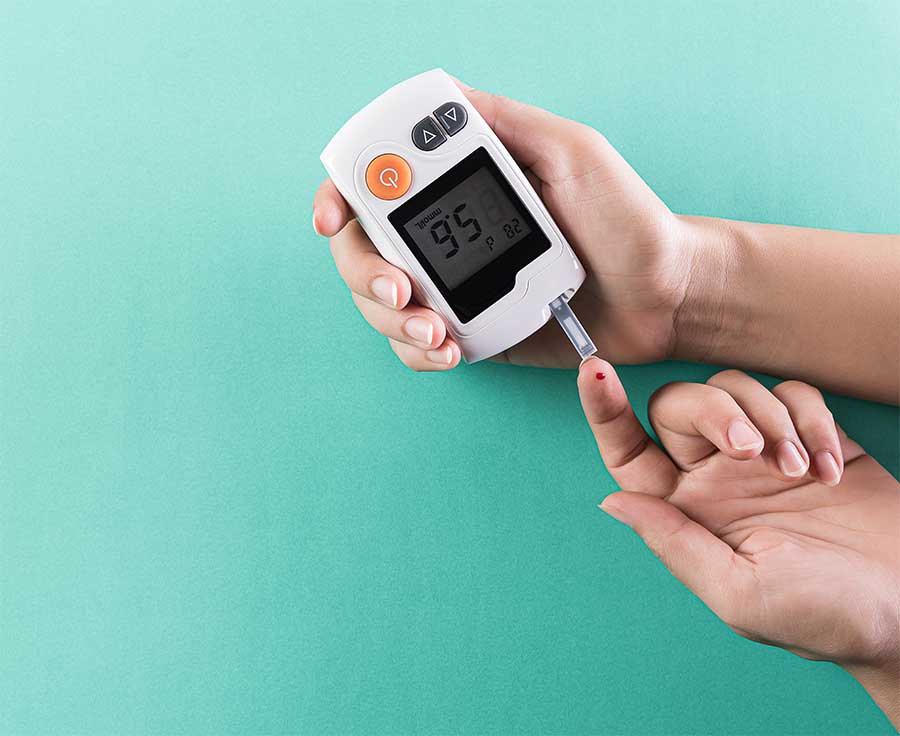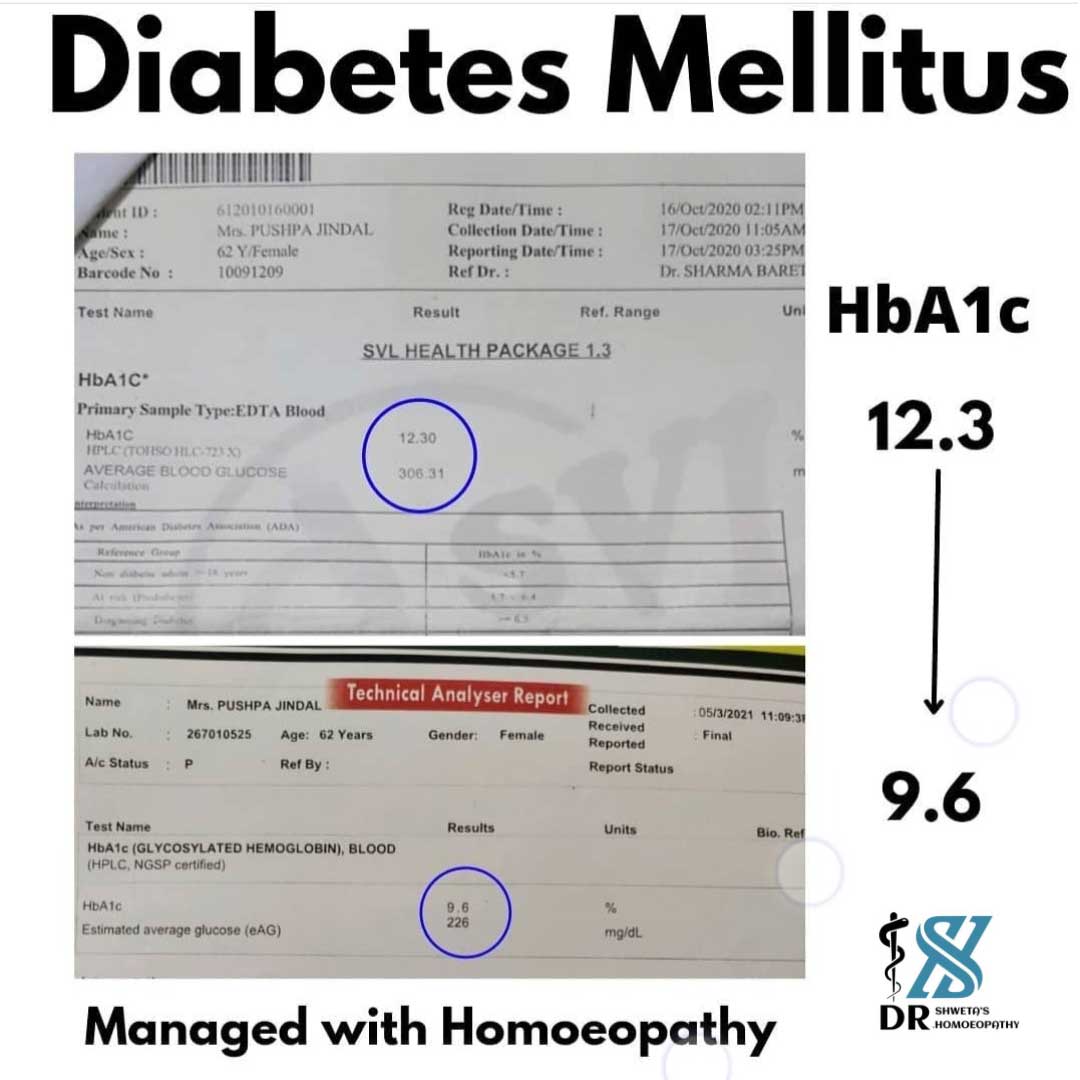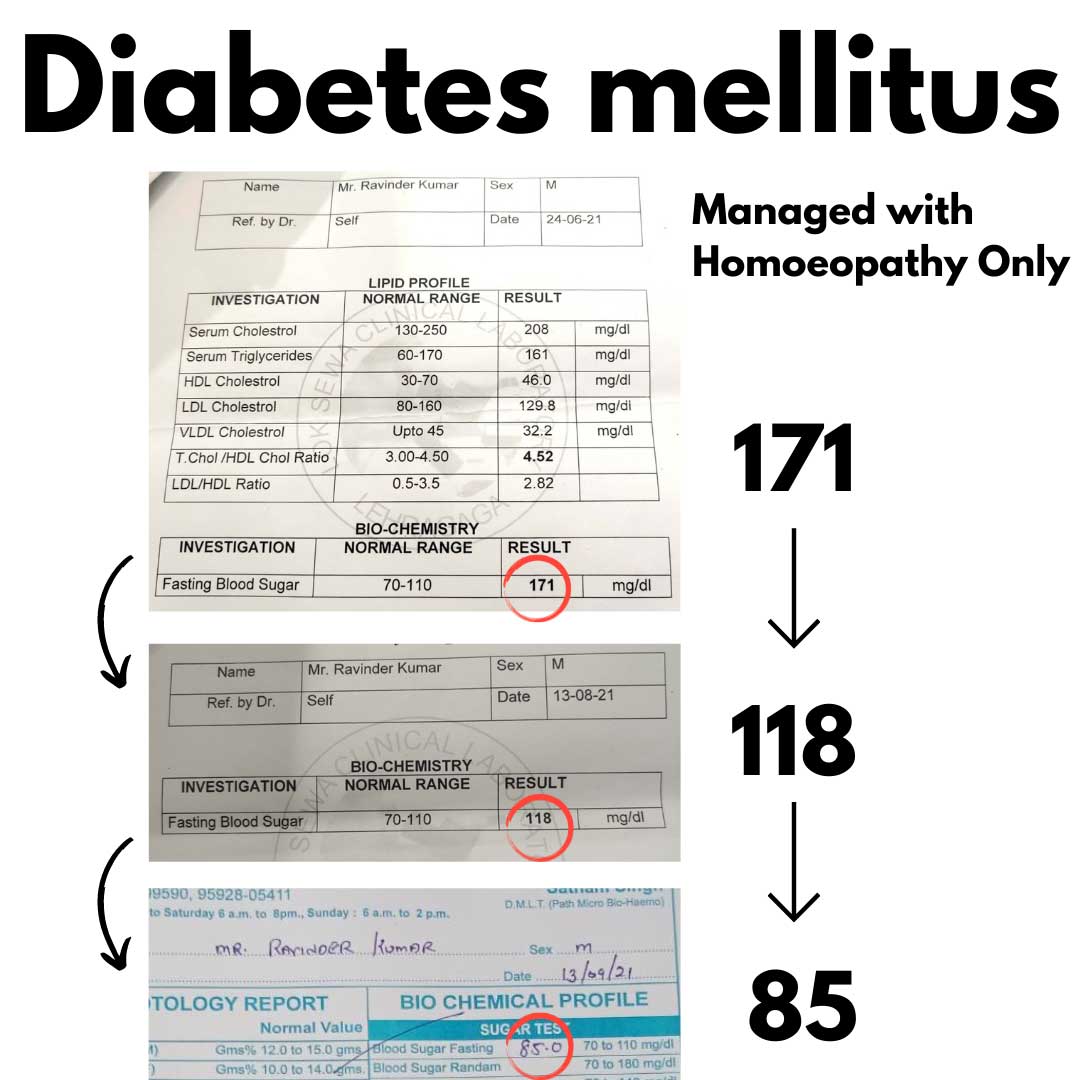
Balancing Glucose, Nurturing Wellness: The Role of Homoeopathy in Managing and Curing Diabetes Mellitus
Diabetes mellitus is a metabolic syndrome that causes high blood sugar. The hormone insulin moves sugar from the blood into your cells to be stored or used for energy. With diabetes, your body either doesn’t make enough insulin or can’t effectively use the insulin it does make.
Untreated high blood sugar from diabetes can damage your nerves, eyes, kidney, and other organs.
There are three main types of diabetes-
- Type1 Diabetes,
- Type2 Diabetes, and
- Gestational Diabetes Mellitus
Type1 :- diabetes can develop at any age but it is most often diagnosed in children, adolescent of young adults. In type1 diabetes, body produce small amount of insulin or no insulin at all. Insulin works like a key for glucose, unlocks the cells so that glucose molecule can enter inside the cell. This leads to accumulation excess of glucose in the blood stream.
Type 2 :- diabetes is more common in adults. In this, insulin is secreted by the pancreas but not used properly but the tissues of the body.
Gestational diabetes is high blood sugar glucose during pregnancy which is harmful to both mother and child. There is risk of type2 diabetes in the child later in life.
Diabetes Mellitus, a chronic metabolic disorder affecting millions globally, requires comprehensive and personalized care. In this pursuit of holistic health, Homoeopathy emerges as a promising ally, offering not only symptom management but also potential avenues for the management and even the resolution of diabetes. Understanding the intricate interplay of factors contributing to diabetes, Homoeopathy provides an individualized and gentle approach towards achieving balance and well-being.
The Role of Homoeopathy in Diabetes Management:
Holistic Assessment
Homoeopathy recognizes that diabetes is not just an isolated condition but a reflection of an individual’s overall health. By conducting a thorough examination of the patient’s physical, emotional, and lifestyle factors, Homoeopathy tailors treatments to address the unique contributing factors to diabetes.
Balancing Blood Sugar Levels
Homoeopathic remedies aim to regulate blood sugar levels by enhancing the body’s natural ability to produce and utilize insulin. This targeted approach helps in achieving a more stable and balanced blood glucose profile, reducing the reliance on external medications.
Addressing Underlying Causes
Diabetes often has underlying causes such as hormonal imbalances, genetic predispositions, or lifestyle factors. Homoeopathy seeks to address these root causes, contributing to a more sustained and comprehensive management of the condition.
Individualized Treatment Plans
No two individuals experience diabetes in the same way. Homoeopathy considers the unique symptoms, responses, and triggers for each patient, ensuring that the treatment plan aligns with their individual constitution. This personalized approach enhances the effectiveness of the treatment.
Management of Complications
Diabetes can lead to various complications affecting organs such as the kidneys, eyes, and cardiovascular system. Homoeopathy plays a crucial role in managing and preventing these complications by supporting overall health and mitigating the impact of diabetes on vital organs.
The Potential for Curing Diabetes with Homeopathy:
Homoeopathy has shown the potential to bring about positive changes in insulin sensitivity, thereby contributing to the reduction or elimination of the need for external medications. The curative potential of Homoeopathy lies in its ability to address the underlying factors contributing to diabetes and supporting the body’s innate healing mechanisms.
In Type1 diabetes homoeopathy can manage symptoms and complications of the disease. Homoeopathic treatment is keyed to manage the metabolic aspect of individuals having diabetes with both therapeutic and nutritional measures. This is achieved through appropriate homoeopathic remedies, lifestyle changes, reducing stress, regular exercise and customized diet.
Homoeopathy looks at diabetes as a reflection of the body’s inability to function optimally, or an imbalance in the body’s capacity to effectively utilize insulin that it produces, or not generate sufficient insulin for its needs.
Homoeopathy recognizes importance of underlying causes such as genetic and inherited factors as the root of any ailment of the body. Homoeopathic medicine prescribed in such conditions covers those criteria and it is very crucial in management of deep rooted diseases.
Concept of disease in homoeopathy is that disease is a total affection of mind and body, the disturbance of the whole organism. Individual organs are not the cause of the illness but the disturbance at internal level. Therefore homoeopathy does not believe in giving different medicines for different afflicted parts of body but rather give a constitutional.
Conclusion:
Diabetes mellitus is a disease which has to be managed and homoeopathy does it beautifully with managing signs and symptoms and preventing complications.
Beyond symptom management, Homoeopathy seeks to foster a balanced and resilient state of health, potentially reducing the impact of diabetes on daily life. Explore the holistic and individualized approach of Homoeopathy at our clinic to embark on a journey towards balanced glucose levels and overall well-being.



